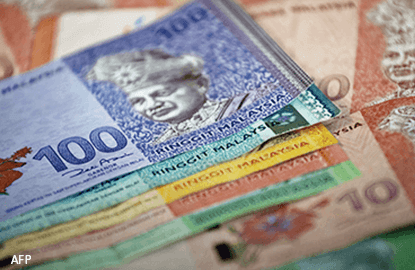
SINGAPORE (March 6): Last May, a 128-gigabyte Apple iPhone 6s Plus in Malaysia cost RM3,699. At the exchange rate of SGD1:RM2.85 then, that would have been around S$1,298 –about the same as the retail price in Singapore.
At today’s exchange rate of RM3.16 though, Singaporeans can get the same phone for S$1,170 in Malaysia. With the phone selling in Singapore for S$1,218, they could save around S$50.
It’s not such a good deal for Malaysians coming to Singapore though.
That S$298 Guns N Roses ticket you bought in Jan for RM894 would have been RM849 in May last year, when the exchange rate was at its lowest point for the year. If it had been four years ago, when the ringgit was at its strongest in 2013 at RM2.40, the tickets would have cost around RM715.
It’s no secret that the ringgit has weakened a lot in the past year. What happened was a rise in bond yields across the developed world when Donald Trump won the election in Nov with promises to “Make America Great Again.”
That raised expectations of a stronger US economy, which drew foreign money out of short-term Malaysian bonds towards higher-yielding investments elsewhere.
Around 40% of Malaysia’s short term bonds are held by foreigners. The sudden exodus of funds – which hit its highest level since 2008 last Nov and Dec at a total of RM25.2 billion – caused the ringgit to fall.
Then, in December, the Federal Reserve hiked the interest rate after keeping it on hold for a year, causing the USD to strengthen against other currencies.
But the reason the ringgit has stayed weak when other currencies like the SGD had strengthened recently, is Bank Negara Malaysia’s curbs on offshore speculation. To stop the ringgit from further volatility, the central bank put a stop to trading the currency in the non-deliverable forwards (NDF) market last Nov.
The NDF market is the offshore marketplace for foreign companies and investors with local dealings to trade or hedge their exposure to the ringgit because domestic restrictions make it difficult for them to do so in Malaysia.
Since then, foreign investors have cut their NDF involvement in the ringgit and the currency’s volatility is reported to have fallen to its lowest since 2013.
However, the ringgit is now consistently trading at its weakest level against the USD and SGD since the Asian Financial Crisis, even though oil prices have risen and BNM has not cut the Overnight Policy Rate of 3%.
On one hand, the NDF curbs matter because when central banks intervene in the markets, foreign investors lose confidence in doing business. This is especially since Malaysia has a history of implementing more draconian measures like restricting capital from leaving the country during the AFC. The result is a persistently weak but stable currency.
If BNM removes the curbs, the ringgit could spike at first, but the risks will also return. This would lead to a more volatile currency which would fluctuate with oil prices and every other new development in global monetary policy. That means the ringgit can actually go even lower from here without the restrictions, since the long-term view is for US rates to rise.
Also, the weak currency has done some businesses good since exports grew by 13.7% in January even though imports of consumer goods are down. The economy is also forecast to grow at 4%-5% this year compared to China's forecast growth of 6.5%. The Singapore and US economies are growing at around 2%.
In any case, analysts don't think BNM will lift the NDF curbs soon. The latest forecast by Credit Suisse is for the ringgit to fall to 4.55 against the USD in 12 months' time.
The good news is that in the months ahead the ringgit might strengthen against the SGD, which is more sensitive to movements in the USD. Also, Singapore's economy isn't doing as well as before and unemployment is becoming a problem.
As such, analysts are expecting the Monetary of Authority of Singapore to keep the SGD from appreciating to give exports a better chance of growing this year.